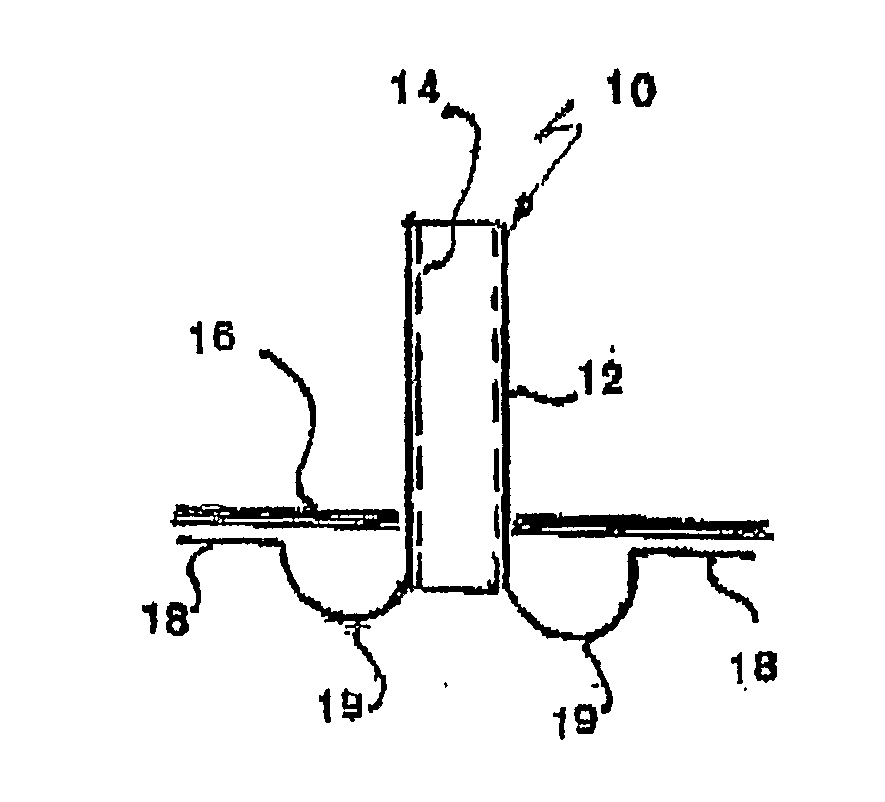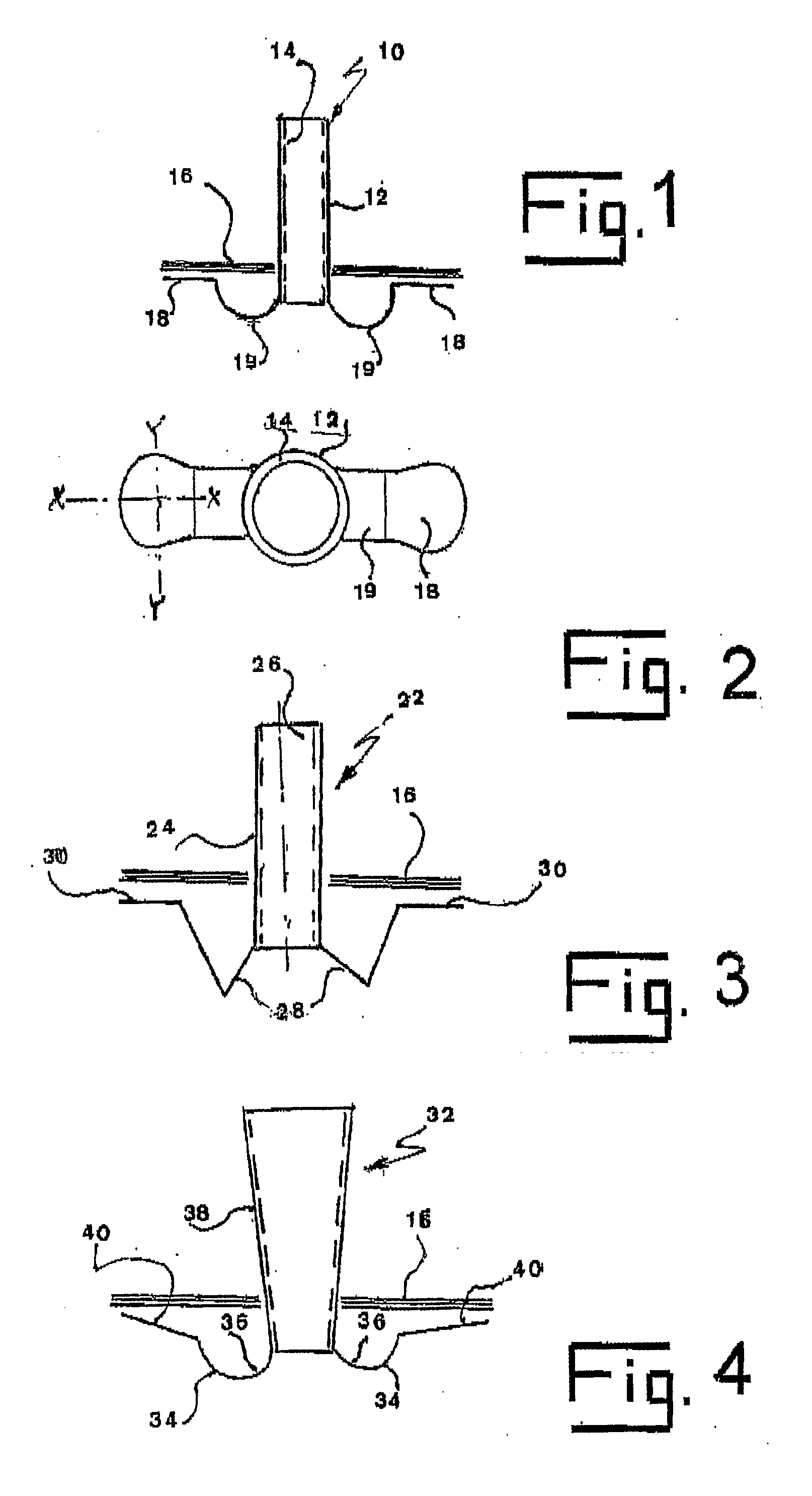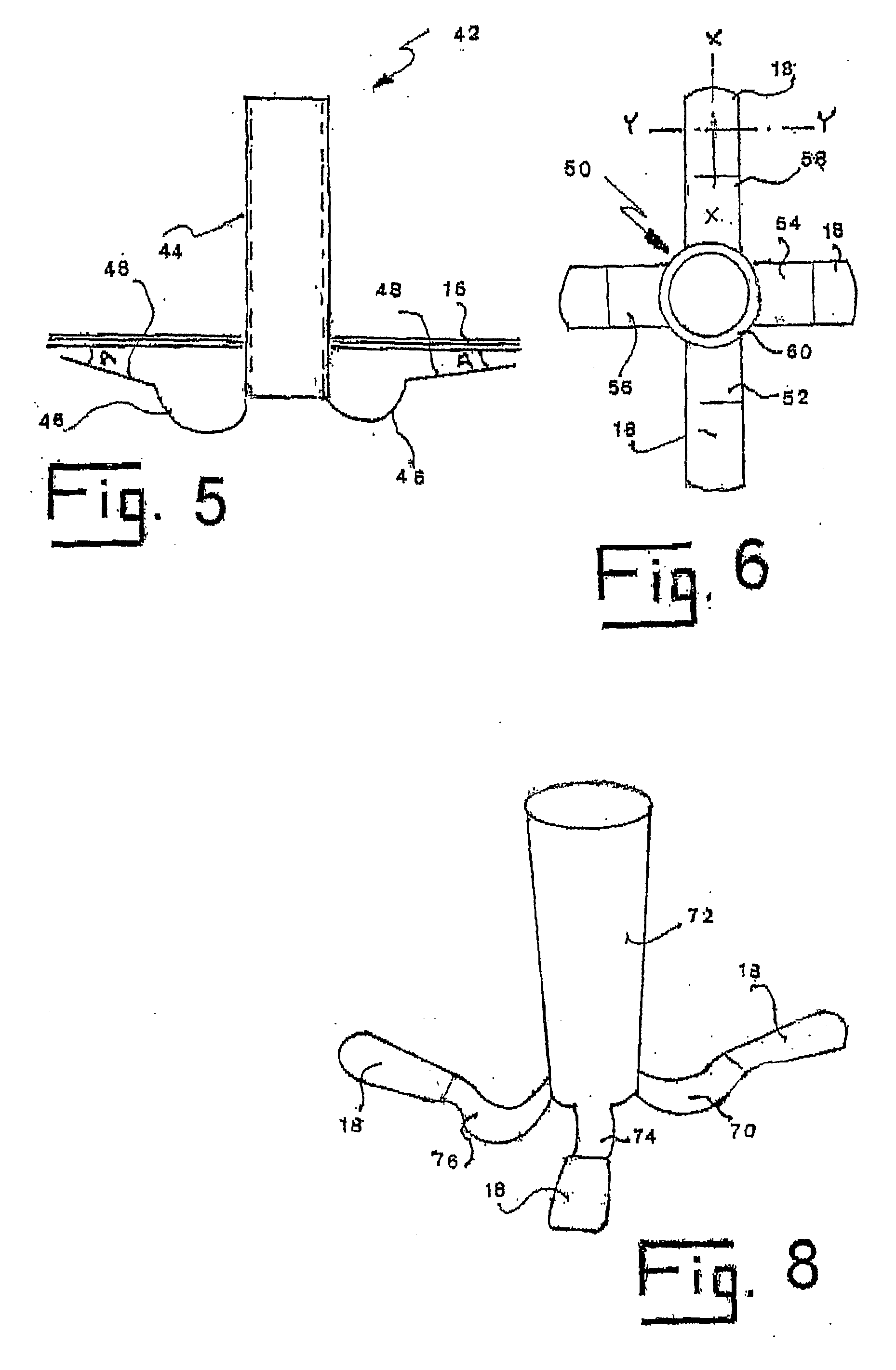Ear tubes
a technology of ear tubes and ear canals, applied in the field of ear tubes, can solve the problems of infection endangering the ear, affecting the normal functioning of the ear, and the pressure in the middle ear tends to drop, so as to achieve good ventilation and drainage, easy inserting, and easy removal
- Summary
- Abstract
- Description
- Claims
- Application Information
AI Technical Summary
Benefits of technology
Problems solved by technology
Method used
Image
Examples
Embodiment Construction
[0100]There is seen in FIG. 1 a flexible ear tube 10 for draining and ventilating the middle ear. The tube 10 has a flexible substantially tubular stem 12 with a lumen 14, the stem 12 being sized to be inserted through an incision in the eardrum 16. The tube seen in the figure has two separate flexible contact surfaces 18, extending from the stem 12 by means of arms 19.
[0101]Preferably each of the separate flexible contact surfaces 18 has a substantially flat contact surface area of at least 1 mm2. Advantageously this area is 1.5 mm2, and can even be 2 mm2 or more.
[0102]The tube is made of flexible material, for example of silicone rubber or of soft plastic, for example a suitable grade of urethane.
[0103]The contact surfaces 18 are adapted to engage different spaced-apart inner surface of the eardrum 16. Each of the contact surfaces 18, as will be seen in FIG. 8, has a first axis XX extending substantially perpendicularly to the central axis of the stem and a second axis YY extendin...
PUM
 Login to View More
Login to View More Abstract
Description
Claims
Application Information
 Login to View More
Login to View More - R&D
- Intellectual Property
- Life Sciences
- Materials
- Tech Scout
- Unparalleled Data Quality
- Higher Quality Content
- 60% Fewer Hallucinations
Browse by: Latest US Patents, China's latest patents, Technical Efficacy Thesaurus, Application Domain, Technology Topic, Popular Technical Reports.
© 2025 PatSnap. All rights reserved.Legal|Privacy policy|Modern Slavery Act Transparency Statement|Sitemap|About US| Contact US: help@patsnap.com



